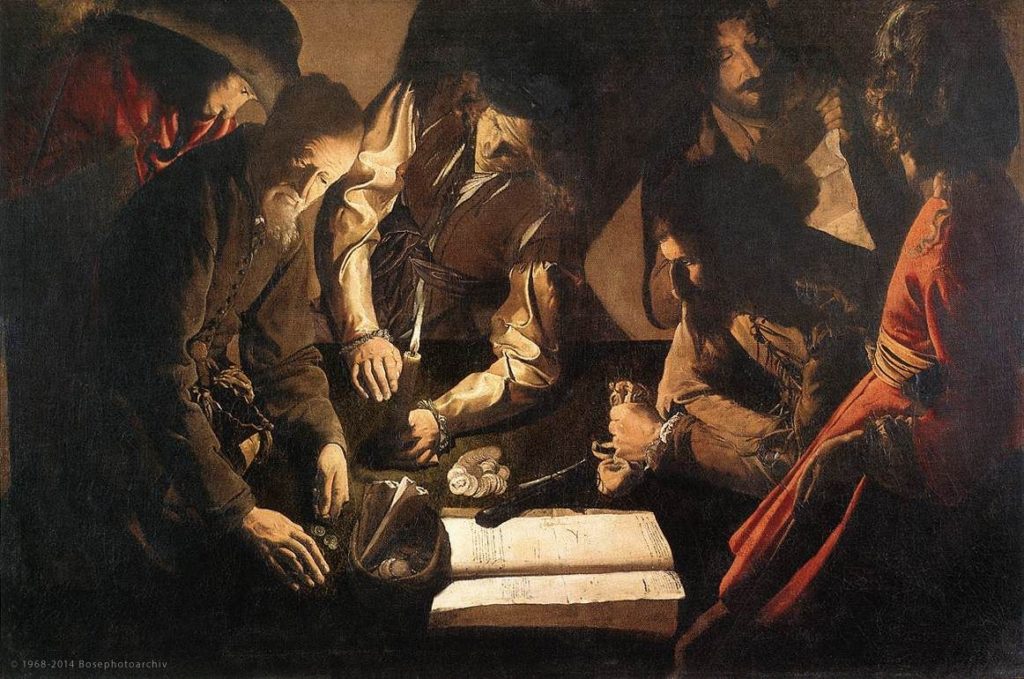Sunday Homily by Rev. Fr. William Eronimoose MI (Camillians)
My homily for the 33rd Sunday in Ordinary Time (Year A) is centered on theme: Gifted with task to entrust in turn to the giver for the common good.
Once I had received an image of a poor man in street being given by Jesus a piece of bread long enough to eat. My mind noticed very keenly at the bread. As I noticed, the long piece of bread resembled a brick. I thought to myself: Jesus today invites us to give bricks to the poor person to use them to construct a home wherein he can taste the piece of bread in dignity and with his family.
Everything is a gift of God and it belongs to God. Human person is „the gift‟ that belongs to God first and then entrusted to Him as gift in return uncontaminated. To return the gift back to God involves a task, a responsibility, a hardworking according to a life worthy of the gift that is received. This is the message the 33rd Sunday calls us to reflect on and put into practice.
Accordingly, the first reading from Proverbs 31:10-13, 19-20, 30-31 exclaims about the „wife‟ as the worthy person found by the husband, to whom he entrusts himself completely. This wife who is given to the husband as gift beyond any pearl puts herself in action or in task to carry out the activities worthy of the person herself. By gift „wife‟ is all worth and good, and by task she aligns herself to do the good. In this way she is faithful to her husband and in turn to God.
The second reading from 1 Thessalonians 5:1-6 speaks about the Day of the Lord. St. Paul says that the Lord‟s Day will come like a thief at night. Those who are in dark, doing evil actions against their good nature, cannot recognize the Lord due to their life in complete darkness. It is like missing the anchored boat just in front of the person who doesn‟t know swimming. But for those who are already in the light, that is, those who do good human actions according to their nature as good and redeemed by Christ need not worry about the Lord‟s Day.
The gospel from Matthew 25:14-30 invites us to use our life as gift and task while waiting for the Lord‟s Day. Without delving into details, let us examine the 3 imperatives of today‟s gospel:
1) Settle the Account:
We are called to settle the account. What we have received as gift are to be given back to God as task when He comes to settle the account with us. If we have gained 5 out of 5 or 2 out of 2, it means that our life as gift has already been aligned with the our nature as good so that we are able to carry out the task that has made us gain 5 out of 5 or 2 out of 2. This shows we have benefitted a lot out of these given talents.
2) Surrender the Extra Talents for the Common Good:
We are called to entrust God the gained talents to use them according to the universal destination of goods about which the Fratelli Tutti helps us a lot to understand.
- #119: in the 1st centuries, many thinkers developed a universal vision on the common destination of created goods. This led them to realize that if one person lacks what is necessary to live with dignity, it is because another person detains it. Not to share our wealth with the poor is to rob them and take away their
livelihood. The riches we possess are not our own, but theirs as well (St. John Chrysostom). When we provide the needy with their basic needs, we are giving them what belongs to them, not to us (St. Gregory the Great).
- #120: the principle of the common use of created goods is the first principle of the whole ethical and social order. It is a natural and inherent right that takes priority over others, which should actively be implemented ( Paul VI).
Therefore, God gives us the talents so that we are able to produce more and this „more‟ should not be accumulated in our pockets because it doesn‟t belong to us but to God to render them to those who are deprived of what is essential for a life worthy of their dignity.
3) Search to avoid Counter Effects:
Any gift that goes wasted will have counter effects. The person who received 1 produced 0. The parable clearly speaks of his irresponsible behaviour with 3 grave sins: i) no shared responsibility,
- ii) no proper planning, and iii) indifference and cynicism
- No Shared Responsibility: Knowing that he would not be able to produce any more, he should have given to someone else so that that „someone else‟ would have brought out good results. This shows his shared
- No Proper Planning: The unproductive servant lacked proper planning which brought about disaster to himself, to his family and to all his close associates who share the same mentality. “[Our life] nowadays has no longer healthy debates about long-term plans to improve people‟s lives and to advance the common good” (FT #15). If he planned well, the plan “would set great goals for the development of our entire human family (FT #16).
- Indifference and Cynicism: The servant had indifferent and cynic attitude which did not help him to produce talents. In today‟s world what reigns is a cool, comfortable and globalized indifference, which, unmindful of the great fraternal values, leads to a sort of cynicism (cf. FT #30). This character leads one to “go down the road of disenchantment and disappointment, isolation and withdrawal into one‟s own interests” (FT #30).
Lack of shared responsibility without proper planning and with indifference and cynicism bring lots of counter effects. They are never the way to restore hope and bring about renewal (cf. FT #30). But it is closeness, it is the culture of encounter, it is the sense of belonging to a single human family, it is the dream of working together for justice and peace (cf. FT #30) that will help the person to be productive of his own talents for his own good, for the common good and for the good of those who are deprived of any good.
The parable of the talents is very well portrayed in FT #123:
- All our activities are essentially noble vocations to produce wealth and improve our world. God encourages us to develop our talents, and he made an immense potential
- In God‟s plan, each individual is called to promote his or her own development, and to find the best economic and technological means of multiplying goods and increasing
- All abilities are gifts from God for the development of others and for eliminating poverty, through the creation of diversified work
- The right to private property should be accompanied by its subordination to the universal destination of the earth‟s goods, and thus the right of all to their
To conclude, I would say, Jesus calls us through the parable of the talents to follow those three imperatives said above: 1) Settle the account with the Giver when asked, 2) give the gained talents back to God so that He will use them through the people of good will for the common destination of goods, and 3) have shared responsibility with proper planning and without any indifference and cynicism so that nobody will go empty-stomach, bear-bodied and roofless at night.
















Camillians on Facebook
Camillians on Twitter
Camillians on Instagram